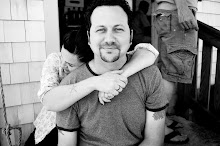Earlier this week, I watched and loved
Blue Valentine, a movie whose characters you can recognize as actual human beings whose flaws, struggles, and hopes are not dissimilar from your own. I rarely see movies where the characters are drawn so true to life or where a relationship, particularly a relationship that is falling apart, is reflective of the virtues and vices of both individuals, like the relationships that actual human beings like you and me have been in, and where no one is demonized.
The realistic portrayal of the lives of the characters (and their drinking, which also seemed true to life) reminded me of a favorite writer, Raymond Carver. And then there was a scene, where in intoxication and frustration, the male character pulled his wedding ring off his finger and threw it into the grass, which I remembered from a Carver story and which I took to be a conscious reference on the part of the filmmaker.
In my recollection, the character in the Carver story, in a burst of drunken and momentary animosity and foolhardiness and in the presence of his spouse, pulled off his wedding ring in threw it off a deck out into a field. He immediately regretted it and realized that he could never find the ring, or repair the damage that he had done to his marriage.
I have looked for the story but, as near as I can tell, it does not exist, at least not as I remember it. Instead, in a wonderful story called "Chef's House," about a couple who are long separated because of drinking and strife, they come together at a summer house after the husband goes on the wagon and they remember what they loved about each other, only to see it fall away again. In that story, in his book
Cathedral, Carver wrote the following paragraph, the only one in his work I can find about thrown wedding rings:
We drank coffee, pop, and all kind of fruit juice that summer. The whole summer, that's what we had to drink. I found myself wishing the summer wouldn't end. I knew better, but after a month of being with Wes at Chef's house, I put my wedding ring back on. I hadn't worn the ring in two years. Not since the night Wes was drunk and threw his ring into a peach orchard.
I guess its possible that I made up the other details, or filled them into my understanding of this moment in Carver's spare and brief narrative. Whether or not it was a conscious reference or a reference at all, I still regard the film as Carveresque, which is to say beautiful, true, and as sad as life.
